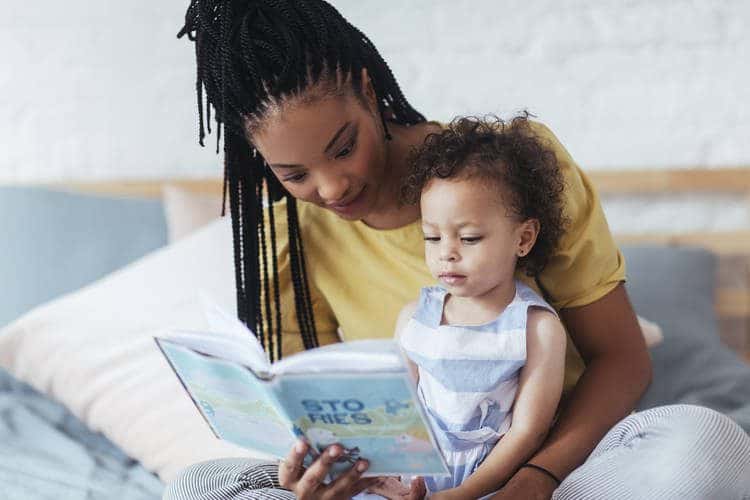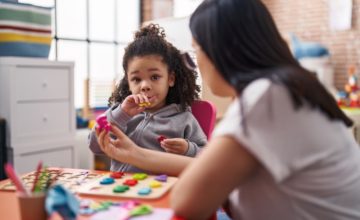We always hear about how reading to babies and toddlers is good for them, but why? What’s so special about it, and why should sharing stories find a place in your daily routine?
Here are five research findings all parents should know, along with recs for making story-sharing part of your daily routine.
1. Read to your baby and toddler early and often. Research shows that shared reading with a parent helps babies and toddlers learn new words and understand the language they hear. These learning benefits are stronger the earlier that shared reading is started and the longer it goes on.
2. Book-sharing helps children learn unique words. Even picture books contain words we don’t usually use in speech. In Pirates Don’t Change Diapers, just one page includes unique words like pirate, sea chanty, jig, and treasure. Sharing stories helps children learn new, unusual words and develop an extensive vocabulary. In fact, picture books are two to three times more likely to include a word that isn’t among the 5,000 most common English words compared to everyday parent-child conversations.
3. It’s not just how often you read together, but how you read together. Starting conversations about the stories, labeling objects in the pictures, and describing the feelings of the characters are important tools to drive your child’s language learning. A recent study found that the quality and quantity of shared reading in the early years predicted a child’s vocabulary at age four.
4. Asking your child questions while you read is a great strategy to spark vocabulary growth Look for ways to get your toddler talking about the story. Start with simple questions like, “What is the farmer holding?” or “What is the child doing?” Later, move on to more challenging questions like, “The dog looks sad. When do you feel sad?”
5. Using shared reading and conversations to build your child’s language skills helps them be ready for kindergarten. Building an extensive vocabulary through shared reading makes a big difference over time. One study found that children with stronger spoken language skills at age two entered kindergarten with higher levels of math and literacy achievement, better self-regulation, and fewer behavior problems than peers without the same level of language skills.




